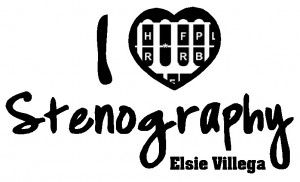RPR Reference Materials
 I spoke to an NCRA representative today to get some advice on what to study for the upcoming examination. She told me that a new study guide was slated to come out this year, although she wasn’t certain of the exact date, as it has not been announced yet. She also directed me to a part of the website that lists the following materials as references for the written knowledge part of the test:
I spoke to an NCRA representative today to get some advice on what to study for the upcoming examination. She told me that a new study guide was slated to come out this year, although she wasn’t certain of the exact date, as it has not been announced yet. She also directed me to a part of the website that lists the following materials as references for the written knowledge part of the test:
All references are the most recent editions, unless otherwise noted.
Business
Dictionary of Business Terms
(Barron’s)
Dictionary of Insurance Terms
(Barron’s)
Robert’s Rules of Order
Computer
Ask Mr. Modem! (2nd ed)
Dictionary of Computer and
Internet Terms (Barron)
Sherman’s Guide to Web Sites
Windows Help
General
Bartlett’s Familiar Quotations
Dictionary (Merriam-Webster’s)
NCRA (Journal of Court Reporting,
web site, Policies and Procedures
Manual, other)
Grammar
Glossaries for Court Reporters
Grammar for Court Reporters
Gregg Reference Manual
Morson’s English Guide for Court
Reporters
Proofreading Manual [A Guide for
Court Reporters, Scopists, and
Proofreaders]
Legal
ADA Information
Black’s Law Dictionary (8th)
The Bluebook: A Uniform System of
Citations
Federal & State Rules of Civil and
Appellate Procedures
Federal Register
IRS Publication
Special Interest Groups (e.g. AAJ,
ABA)
Medical
Health Professional’s Drug Guide
Stedman’s Medical Dictionary (28th ed)
Technology
Alternative Realtime Careers
An Introduction to Court Reporter
Technology
CART in the Courtroom: NCRA
Model Guidelines
CAT Software Manuals
The Complete Court Reporter’s
Handbook and Guide for
Realtime Writers
The Court Reporter’s and CART
Services Handbook
Closed Captioning Handbook
Deposition Handbook
Dictionary of Scientific and
Technical Terms (McGraw-Hill)
Inside Captioning
Realtime Systems Administrator
Pocket Guide (NCRA)
Realtime Writing
Writing Naked


